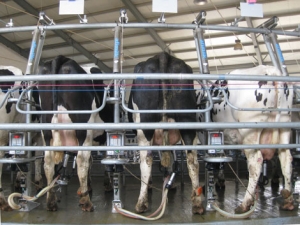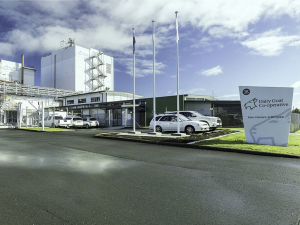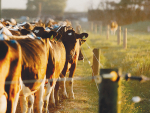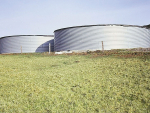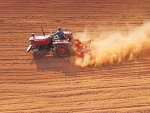The latest auction was a shocker, the GDT price index dropping 10.7% on the last sale two weeks ago and wholemilk powder prices taking a 12-month-record drop.
Whole milk powder -- accounting for 75% of Fonterra’s farmgate milk price -- fell in price by 13.1% to US$1848/t, its lowest level in six years.
With last year’s Fonterra farmgate milk price standing at $4.40/kgMS or the dividend included $4.60-$4.70 for a fully shared up farmer, farmers now face two consecutive seasons of extremely low milk prices.
Most farmers can’t break even at such a low milk price. Many will pull back on discretionary spending, rightly so.
But as DairyNZ says, farmers can and will use the opportunity to strengthen the industry. Yes, it will be very challenging, but the opportunity to increase the industry’s resilience is there to see; we simply need to farm more efficiently.
Ultimately, this challenge could make us more competitive if we accept it by driving efficiency throughout our businesses.
Now’s the time to budget for next season; the payout may be out of your control but the cost of production onfarm is not.
It’s worth repeating here DairyNZ’s advice to review budgets line by line. Question every line: do I retain the expense, can I reduce it, can I defer it (say to next year) or can I remove it?
Below is an example of the process:
• Retain spending that has a direct impact on current profitability, e.g. fertiliser N to fill feed deficits, preventative animal health vaccinations, metabolics and minerals.
• Reduce by trimming costs to live within our means, e.g. doing tasks ourselves (GST, cashbook, relief milking), personal drawings and using bull of the day instead of premium sires.
• Defer spending on the future of the business that will not contribute to a return this year, e.g. capital phosphate, re-grassing, repairs and maintenance (you could DIY) or machinery replacement.
• Eliminate costs that waste cash, thereby producing a long term benefit for your business, e.g. supplement, pasture, supplies, vehicle use/time wastage, and bank and IRD penalties.

